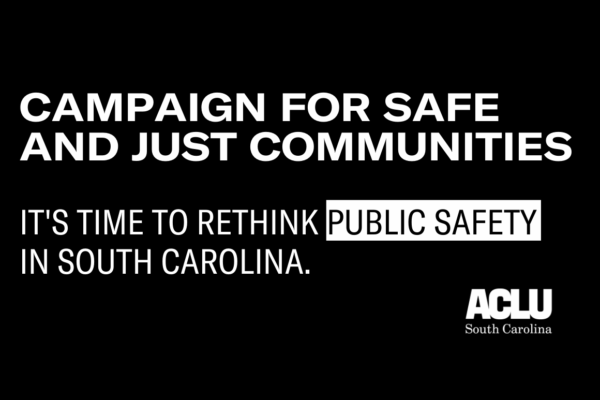Fifty years ago today, the U.S. government launched a seemingly endless war on its people. The “war on drugs” has funneled hundreds of billions of dollars into policing and prisons. It has helped turn America into the incarceration capital of the world and has harmed countless people. It has disproportionately targeted Black, Latinx, Indigenous, and poor white people.
Even now, with well-documented harms, many politicians and law enforcement leaders continue to maintain this harmful war.
The good news is that the vast majority of Americans agree that it is time to end the “war on drugs” and instead invest in treatment and addiction services. According to a national poll released last week by the ACLU and Drug Policy Alliance:
- 65% support ending the “war on drugs”
- 66% of voters support “eliminating criminal penalties for drug possession and reinvesting drug enforcement resources into treatment and addiction services”
- Support among Democrats is 85%. Among Independents 72%. Among Republicans 40%.
- 64% of Americans support repealing mandatory minimum sentences for drug crimes
- 61% of voters support commuting, or reducing, the sentences of people incarcerated for drug
Common sense is beginning to prevail. On any given day in America, tens of thousands of people are incarcerated for drug possession. Those lucky enough to avoid incarceration for a drug possession conviction still face discrimination and stigma, crippling debt from court-imposed fines and fees, and are often locked out of jobs, housing, education, welfare assistance due to their criminal record.
Last year Oregon became the first U.S. state to decriminalize the possession of all drugs. Eighteen states plus Washington, DC have legalized marijuana use by adults 21 and over. But, even as states increasingly embrace a harm reduction approach to drug use, South Carolina continues to cling to this destructive war.
For example, marijuana legalization is common sense. Unfortunately, South Carolina doesn’t get it. Our state has the second highest arrest rate for marijuana possession in the United States. And, like all aspects of its criminal justice system, South Carolina’s marijuana laws are enforced with a staggering racial bias. In 2018 Black people were 3.5 times more likely to be arrested for marijuana possession when compared with whites, despite both groups using marijuana at roughly the same rate. And, this disparity is on the rise, up from 1.8 times more likely to be arrested in 2001 to 2.8 times more likely to be arrested in 2010.
The discriminatory enforcement of South Carolina’s marijuana laws means that Black people are more likely to face the immediate harms of a marijuana possession conviction, including potential incarceration, criminal records, the loss of jobs, housing, financial aid eligibility, and child custody.
Even medical marijuana faces strong opposition from South Carolina's top law enforcement leaders, who have resorted to age-old fear tactics. In fact, referring to proposed medical marijuana legislation, State Law Enforcement Division Chief Mark Keel went so far as to say that “never [has he] seen a piece of legislation that has the potential to change South Carolina in a negative way as this legislation does.” Really?
For 50 years our political leaders have used racist code words like “law and order” and “tough on crime” to justify the “war on drugs.” In reality, these policies - sold to the public in the name of public safety - ruin countless lives and make us all less safe.
It’s time for our communities to define and advance our vision for what a just, equitable, and safe South Carolina should look like. And, part of this vision must be ending the “war on drugs” with racial equity at the foundation of such reform.

